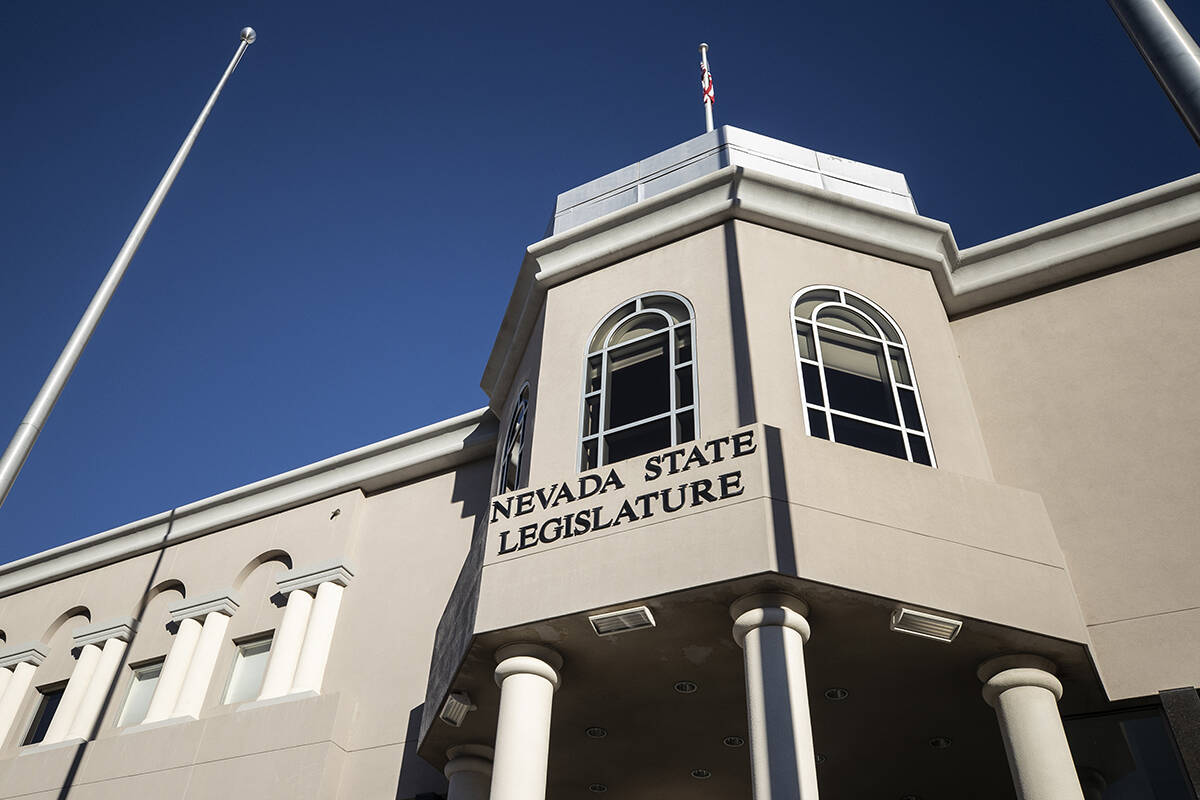EDITORIAL: Court must slap down moonlighting lawmakers
Nevadans deservedly expect that those who make the state’s laws also comply with them. For decades, however, their elected representatives in Carson City have failed to live up to that minimal standard. This must change.
In February, the Nevada Supreme Court heard arguments in a case regarding the state constitution’s separation of powers clause. Article 3, Section 1 of the document declares that Nevada’s government is divided into the executive, legislative and judicial branches and “no persons charged with the exercise of powers properly belonging to one of these departments shall exercise any functions, appertaining to either of the others” unless the constitution specifically states otherwise.
Yet for years, state lawmakers have arrogantly flouted this provision without consequence. There are currently 11 Nevada legislators who moonlight in other taxpayer-funded positions, either at the state or local level. At one point, state Senate Majority Leader Nicole Cannizzaro, a Las Vegas Democrat, simultaneously served as a Clark County prosecutor, both making and enforcing state statutes. She has since resigned and taken a job with a private law firm.
Such dual service raises troubling questions beyond potential conflicts of interest. The Founders understood that the consolidation of power posed a threat to liberty. They deliberately and wisely sought to spread state authority broadly throughout three branches of government as a bulwark against autocracy. Those who wrote Nevada’s guiding document took their lead.
“The accumulation of all powers, legislative, executive and judicial in the same hands, whether of one, a few, or many, and whether hereditary, self–appointed, or elective, may justly be pronounced the very definition of tyranny,” James Madison wrote in Federalist No. 51. The system of checks and balances the Founders created remains integral to promoting the values and ideals of our democratic republic.
But too many of Nevada’s elected lawmakers prefer to trample this vital principle in pursuit of political ambition. They have many enablers. Defenders of the status quo — like Humpty Dumpty (“When I use a word, it means just what I choose it to mean, neither more nor less”) — engage in cynical linguistic legerdemain.
For instance, the Legislative Counsel Bureau — which provides legal advice to lawmakers — previously told a court that a deputy district attorney could legally serve as a lawmaker because he or she “never exercises a function of any branch of government when involved in the prosecution because they are not the district attorney; they assist the district attorney.” To argue that a prosecutor who puts people in jail isn’t exercising “a function” of the executive branch is unadulterated hogwash.
During the February arguments at the state high court, attorneys for the bureau trotted out a similar canard, claiming that the separation of powers provision applies only to high-level employees, such as agency heads. But this requires reading language into the restriction that isn’t there. The constitution makes no such distinction.
Those who object to holding lawmakers accountable under this provision are free to persuade Nevadans to change the law, of course. They prefer instead to play semantic games.
Over the years, the Nevada judiciary has generally turned a blind eye to the matter, stymieing court challenges on technical grounds involving legal standing or other issues. But placing the needs of the well-heeled political establishment above the clear wording of the state constitution only further erodes public confidence in the state’s institutions. The day has come for the Nevada Supreme Court to hold that the separation of powers clause means precisely what it says.

















